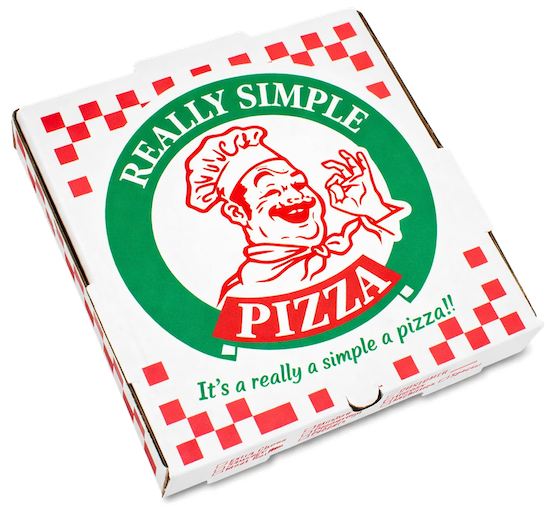opmlProjectEditor format
http://scripting.com/2026/03/01/143312.html?title=opmlprojecteditorFormat
 Some time in 2013 I started editing all my JavaScript projects in the Frontier outliner, and in doing so I designed a format that could contain a whole project. And it worked, I continued building it, and to this day I edit all my projects in this format. It does a lot of work for me automatically, making it possible for me to build more complex stuff.
Some time in 2013 I started editing all my JavaScript projects in the Frontier outliner, and in doing so I designed a format that could contain a whole project. And it worked, I continued building it, and to this day I edit all my projects in this format. It does a lot of work for me automatically, making it possible for me to build more complex stuff.
It turns out you can put a lot of code into an outline on today's computers. The outliner in Frontier was designed to perform well on a 1990 Macintosh with 1MB of memory, so you have to do a lot of writing to overload it.
I am doing a project with Claude.ai which I'm editing of course in OPE format. So I had to teach it how they work so I could give it one of these files, and it would not only be able to understand it, it could make mods and send it back to me in the same format, and with the code more or less formatted the way I like (still working on that).
Yesterday we started the project. I asked Claude to document the format which I called opmlProjectEditor format, which I am now publishing for future reference by myself, other AI bots, and anyone else interested in this.
Here's a link to the opmlProjectEditor docs on GitHub.
I started a this.how page so I can add more links as this develops.
Every source.opml file in my projects on GitHub is in this format. Here's an example file in OPML, and here's a link that opens the file in Drummer to give you an idea what it's like to work in this format.
 The thing that's amazing about Claude.ai is that it understands how software works. I can talk to it about software the way a football coach would talk to a player about football. I gave it some instructions in English about how the outliner was going to evolve. I asked if it remembered how Rules worked in MORE. Yes, it explained it correctly. Then I said I'd like "faceless" rules, where we could edit the source so the outlines looked the way we wanted them to look, using Rules. In the time it took me to write a sentence here, it finished the job. I added a home page for the AI outliner folder with links to the other docs in the folder. Then I did a bunch more changes, I could go on like this forever. It was like working with a team on a product, only the team turns around new versions in seconds, and eventually runs out of space (gets tired?) and I have to start another thread. I just did a transition and it seemed to pick up pretty close to where we left off. I have a lot of ideas here. Expect an explosion of new versions of popular software writing by individual people. We'd better make sure the standards of the web are really well documented.
The thing that's amazing about Claude.ai is that it understands how software works. I can talk to it about software the way a football coach would talk to a player about football. I gave it some instructions in English about how the outliner was going to evolve. I asked if it remembered how Rules worked in MORE. Yes, it explained it correctly. Then I said I'd like "faceless" rules, where we could edit the source so the outlines looked the way we wanted them to look, using Rules. In the time it took me to write a sentence here, it finished the job. I added a home page for the AI outliner folder with links to the other docs in the folder. Then I did a bunch more changes, I could go on like this forever. It was like working with a team on a product, only the team turns around new versions in seconds, and eventually runs out of space (gets tired?) and I have to start another thread. I just did a transition and it seemed to pick up pretty close to where we left off. I have a lot of ideas here. Expect an explosion of new versions of popular software writing by individual people. We'd better make sure the standards of the web are really well documented.
 I asked Claude.ai to "write me a nice little spreadsheet program that runs in the browser." Here it is. It looks like a spreadsheet app but it's missing most of the really good commands, like defining the value in one cell with the sum of two other cells using point and click. If you go down this path, ask it to keep a user's guide current, and then ask it to put in features, and just describe them in standard spreadsheet terminology. The trouble starts when you want to make something that doesn't have a standard terminology yet because it's new.
I asked Claude.ai to "write me a nice little spreadsheet program that runs in the browser." Here it is. It looks like a spreadsheet app but it's missing most of the really good commands, like defining the value in one cell with the sum of two other cells using point and click. If you go down this path, ask it to keep a user's guide current, and then ask it to put in features, and just describe them in standard spreadsheet terminology. The trouble starts when you want to make something that doesn't have a standard terminology yet because it's new.

 If you followed me on Twitter, please follow me on Bluesky or Mastodon. As far as I'm concerned Twitter is gone. Not because I'm religious about this stuff, but my account got hijacked and I can't get it back, so let's close that chapter. It was a great innovative product that also held back progress on the web for 20 years, and it made some people I knew a long time ago fabulously rich, and it would have been nice of them to not do this to us, but what the f, it is what it is. One more thing, guys -- pay your taxes.
If you followed me on Twitter, please follow me on Bluesky or Mastodon. As far as I'm concerned Twitter is gone. Not because I'm religious about this stuff, but my account got hijacked and I can't get it back, so let's close that chapter. It was a great innovative product that also held back progress on the web for 20 years, and it made some people I knew a long time ago fabulously rich, and it would have been nice of them to not do this to us, but what the f, it is what it is. One more thing, guys -- pay your taxes.
 Some time in 2013 I started editing all my JavaScript projects in the Frontier outliner, and in doing so I designed a format that could contain a whole project. And it worked, I continued building it, and to this day I edit all my projects in this format. It does a lot of work for me automatically, making it possible for me to build more complex stuff.
Some time in 2013 I started editing all my JavaScript projects in the Frontier outliner, and in doing so I designed a format that could contain a whole project. And it worked, I continued building it, and to this day I edit all my projects in this format. It does a lot of work for me automatically, making it possible for me to build more complex stuff.